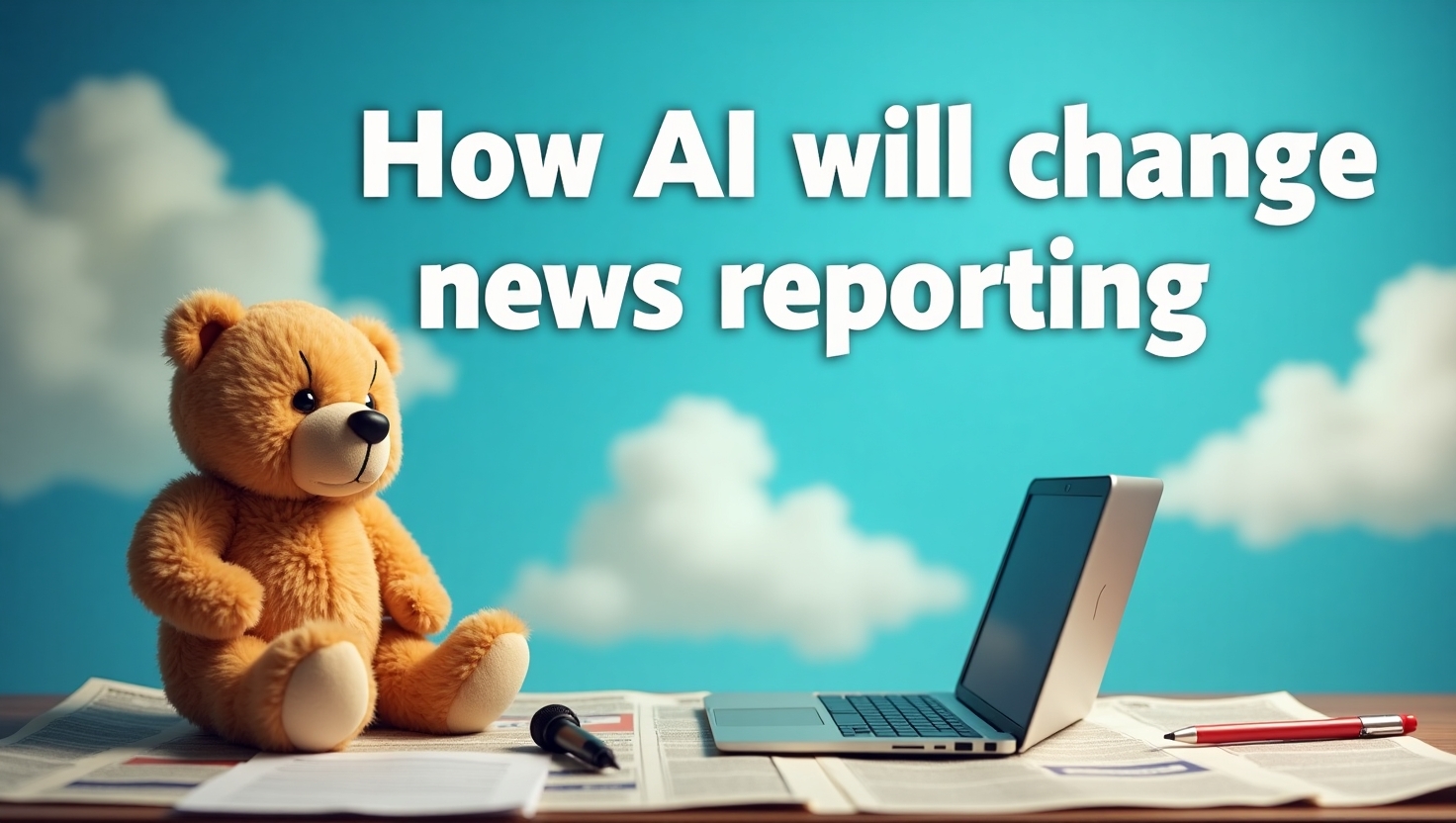Artificial Intelligence (AI) is revolutionizing industries throughout the globe — and news reporting is no exception. In a world where information moves quicker than ever, AI is likely to alter how news is gathered, published, vetted, and consumed. But what precisely does this entail for journalists, media firms, and average readers?
In this article, we’ll investigate how AI will revolutionize news reporting, its benefits, potential threats, and what the future of journalism may look like in a tech-driven society.

What Is AI in News Reporting?
AI in news reporting refers to the use of intelligent algorithms and machine learning tools to aid or automate various jobs in the journalism process. These tools can:
Write basic articles
Analyze enormous datasets
Fact-check content
Personalize news feeds
Predict popular stories
With AI, newsrooms can function more efficiently and deliver faster, more relevant content to their consumers.
Faster and Automated News Writing
One of the most direct ways AI is changing journalism is through automated content generation. AI-powered platforms like OpenAI’s ChatGPT, Bloomberg’s Cyborg, and The Washington Post’s Heliograf can write brief news stories – especially in areas like: Financial reports Sports updates Weather forecasts Election outcomes How it helps: Delivers breaking news faster Frees up journalists to focus on investigative stories Covers everyday topics with precision and quickness This doesn’t imply AI will replace journalists, but rather that it will handle monotonous reporting jobs, providing human reporters more time for profound and creative work.- Smarter Fact-Checking and Fake News Detection
Misinformation is a rising concern in the digital era. AI systems are being developed to automatically evaluate facts, detect biased language, and flag deceptive content. Platforms like ClaimReview and Google Fact Check Tools are already being utilized by media organizations to check accuracy. Why it matters: Reduces the spread of bogus news Builds trust with readers Enhances journalistic credibility AI can analyze thousands of stories in seconds, cross-checking statements with verified sources – something human reporters can’t accomplish manually in real-time.

Data-Driven Investigative Journalism
Modern journalism increasingly entails working with enormous databases. AI can help reporters examine complex data, find trends, and uncover hidden connections. Examples: Investigating political donations Tracking financial fraud Analyzing social media trends Tools like Natural Language Processing (NLP) and machine learning assist journalists in mining data faster and more correctly, opening doors to compelling investigative stories that would otherwise take months to complete.- Hyper-Personalized News Feeds
AI is also affecting how readers consume news. News sites utilize AI to evaluate user behavior and preferences, giving personalized content recommendations. This helps readers stay interested by showing them stories they’re more likely to read. Pros: Improves user experience Keeps readers coming back Helps media outlets retain subscribers However, this also raises worries about filter bubbles, where people only view content that matches their beliefs. News companies must balance customization with diverse, balanced reporting.
AI-powered translation technologies are helping news agencies reach global audiences by turning content into numerous languages instantly. Similarly, voice recognition and text-to-speech systems make news more accessible to those with disabilities. Impact: Expands access to non-English speakers Supports inclusive journalism Promotes media accessibility for all With AI, news becomes truly borderless and inclusive.
Real-Time Insights and Trend Prediction
AI can scan social media, websites, and online chats to predict trending themes. Journalists can utilize these insights to report stories before they go viral or respond rapidly to popular interest. Benefits: Stay ahead of competitors Create more intriguing content Tailor stories based on current public attitude By tracking digital signals, AI gives journalists a competitive edge in an era of 24/7 news. Challenges and Ethical Concerns
Despite its benefits, AI in news reporting also brings some challenges: Job Displacement: Some fear AI may replace human journalists. However, AI is more of a tool than a replacement. Bias in AI: Algorithms can reflect the biases of the data they are trained on, leading to accidental misrepresentation. Loss of Human Touch: AI-generated material may lack emotion, originality, and storytelling — characteristics that make excellent journalism. Over-reliance on automation: Dependence on AI may limit critical thinking and investigative effort. Newsrooms must employ AI responsibly and ethically, ensuring openness and human oversight in content development. The Future of AI in Journalism

Conclusion
The Future of AI in Journalism
AI will not eliminate journalism – it will evolve it. From automating routine stories to empowering deep investigations, AI has the potential to improve news reporting faster, smarter, and more accurate. It will become a formidable ally to journalists, helping them fulfill the needs of a quickly changing digital environment.



